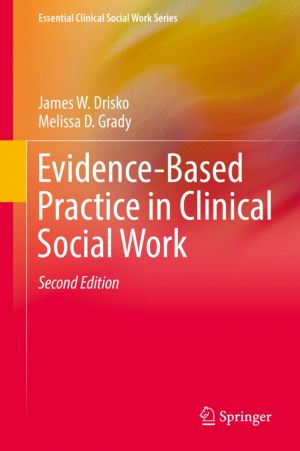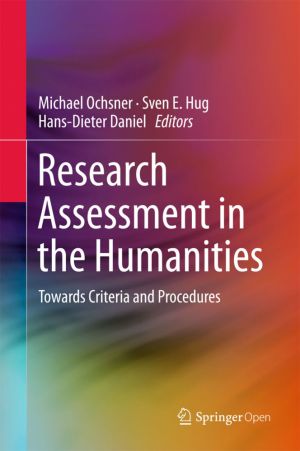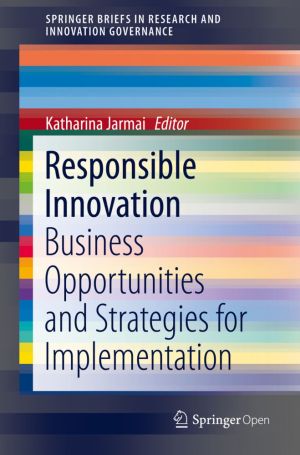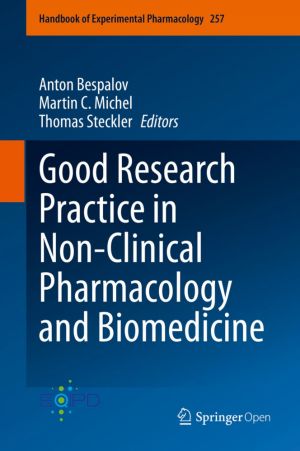Good Research Practice in Non-Clinical Pharmacology and Biomedicine
by Anton Bespalov, Martin C. Michel, Thomas Steckler
DescriptionDetailsHashtagsReport an issue 






Book Description
This free book provides up-to-date information on best practice to improve experimental design and quality of research in non-clinical pharmacology and biomedicine.This open book is licensed under a Creative Commons License (CC BY). You can download Good Research Practice in Non-Clinical Pharmacology and Biomedicine ebook for free in PDF format (8.7 MB).
Book Details
Title
Good Research Practice in Non-Clinical Pharmacology and Biomedicine
Subject
Medical
Publisher
Springer
Published
2020
Pages
424
Edition
1
Language
English
ISBN13
9783030336554
ISBN10
3030336557
ISBN13 Digital
9783030336561
ISBN10 Digital
3030336565
PDF Size
8.7 MB
License

Related Books

How does technology impact research practices in the humanities? How does digitisation shape scholarly identity? How do we negotiate trust in the digital realm? What is scholarship, what forms can it take, and how does it acquire authority?
This diverse set of essays demonstrate the importance of asking such questions, bringing together establis...

This volume offers extensive information on preventive and infection surveillance procedures, routines and policies adapted to the optimal infection control level needed to tackle today's microbes in hospital practice. It especially focuses on preventive measures for serious hospital infections. Each chapter includes a practical section that a...

The 2nd edition of Evidence-Based Practice in Clinical Social Work continues to bridge the gap between social work research and clinical practice, presenting EBP as both an effective approach to social work and a broader social movement. Building on the models and insights outlined in the first edition, this new edition provides updated research an...

This book is open access, which means that you have free and unlimited access.This book analyses and discusses the recent developments for assessing research quality in the humanities and related fields in the social sciences. Research assessments in the humanities are highly controversial and the evaluation of humanities research is delicate. Whi...

This Open Access book, Responsible innovation provides benefits for society, for instance more sustainable products, more engagement with consumers and less anxiety about emerging technologies. As a governance tool it is mostly driven by research funders, including the European Commission, under the term "responsible research and innovation&qu...

This open access book provides an extensive review of ethical and regulatory issues related to human infection challenge studies, with a particular focus on the expansion of this type of research into endemic settings and/or low- and middle-income countries (LMICs). Human challenge studies (HCS) involve the intentional infection of research partici...

